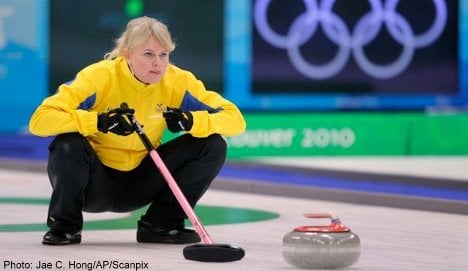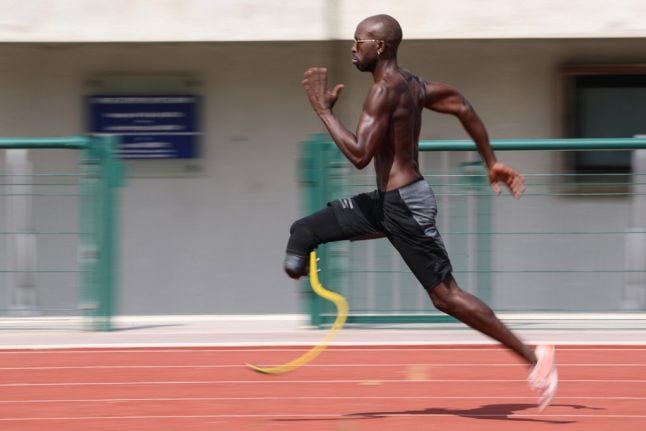“It was an extraordinary game,” Swedish skipper Anette Norberg told AFP news agency, adding that winning back-to-back Olympic gold was a long-held dream.
“That was the goal four years ago. We had a great week but we weren’t happy just being in the final.”
The Canadian women were on the verge of thwarting the Swedes after taking a two-point lead into the tenth end, but Sweden stayed cool to draw level before sealing the match in the 11th, silencing a sold out stadium at the Vancouver Olympic Centre.
In a tight match, Sweden led 4-2 at the break but the host nation then edged ahead, going into the tenth with a 6-4 lead in front of a stadium packed with home fans.
Even after being taken into an 11th end, Canada had a golden chance to win but skipper Cheryl Bernard, who blamed herself for failing to seal victory, was unable to make the last shot of the match count.
It sparked wild celebrations in the Swedish camp as King Carl XVI Gustaf and Queen Silvia looked on.
Canada, supported by Prime Minister Stephen Harper, romped through their qualifying group, with eight wins out of nine, before beating Switzerland in the semi-final.
Sweden had seven wins and beat China in their last-four clash. Norberg said she was proud of her team, whom she described as sisters, saying the Swedish felt they had nothing to lose when trailing by two going into the tenth.
When asked what was going through her mind on Bernard’s last shot, she said: “Actually, I didn’t think at all but I heard them sweeping all the way down so I understood it was curling a lot and there was a spot where it curled a lot as well so suddenly I understood that maybe she wasn’t going to do it.”
It was the second consecutive Olympic gold for Norberg, Eva Lund, Cathrine Lindahl and Anna Le Moine.
A visibly upset Bernard said: “Two shots. I had two shots to win (at ends 10 and 11). You couldn’t ask any more of your team and they left them for me and I didn’t make them.
“We’re going to realise that this was a good feat eventually, the silver, but it’s going to take a little bit to get over the loss of the gold, which was so close.”
Earlier, world champions China took their first Olympic Games curling medal with a crushing 12-6 victory over Switzerland in the bronze medal match.





 Please whitelist us to continue reading.
Please whitelist us to continue reading.
Member comments